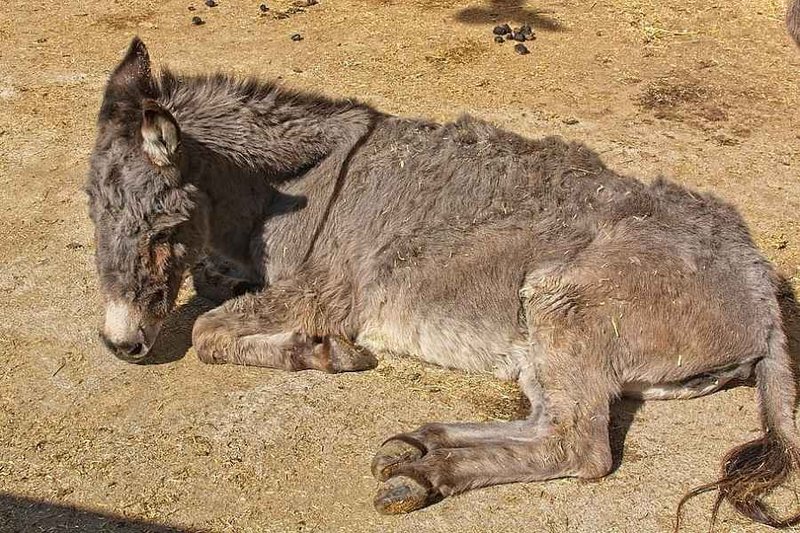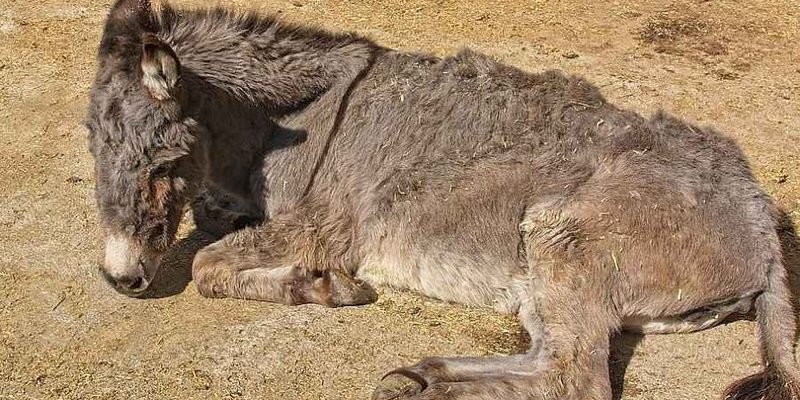
Understanding common donkey health issues is crucial for any owner or caretaker. Just like how we all need regular check-ups at the doctor, donkeys benefit from routine care and attention. In this guide, I’ll walk you through some of the most frequent health problems donkeys might encounter and, more importantly, how to prevent them. Think of it as a little insurance policy for your donkey’s happiness and longevity.
1. Hoof Health Issues
Donkeys’ hooves are like the foundation of a house. If the foundation isn’t solid, everything can come crashing down. Hoof problems are among the most common health issues for donkeys. Conditions like laminitis or thrush can cause significant pain and discomfort. Laminitis is an inflammation of the hoof’s sensitive lamina, often caused by obesity or sudden changes in diet. Thrush, on the other hand, is a bacterial infection that can result from poor hygiene or wet conditions.
To prevent hoof issues, regular trimming and proper care are essential. Here’s what you can do:
- Regular Trimming: Schedule hoof care with a farrier every 6 to 8 weeks. This keeps hooves at the right length and helps avoid complications.
- Proper Diet: Ensure your donkey has a balanced diet to avoid obesity. A simple, high-fiber diet is usually the best.
- Clean Environment: Keep their living space clean and dry. If their hooves are regularly exposed to mud or manure, they’re at higher risk for infections.
Pay attention to your donkey’s feet. Any change in their walk or signs of pain should prompt a call to your vet.
2. Colic: The Silent Alarm
Colic is like that unexpected surprise we all dread—it can strike without warning. It refers to abdominal pain in donkeys, which can be caused by various factors including dietary changes, dehydration, or parasites. The symptoms can range from mild discomfort to severe distress.
Here’s how you can help prevent colic:
- Consistent Feeding Schedule: Stick to a regular feeding routine. Sudden changes in diet can upset their stomach.
- Fresh Water: Always provide plenty of fresh, clean water. Dehydration can lead to colic.
- Regular Exercise: A good amount of exercise helps keep the digestive system moving. Allow them to roam and explore.
If you notice signs of colic—like rolling, looking at their side, or not eating—don’t hesitate to call your vet.
3. Respiratory Issues
Just like humans, donkeys can suffer from respiratory problems. Conditions like heaves (similar to asthma) or infections can affect their breathing. Dusty hay, moldy feed, or poor barn ventilation can worsen these issues, making it tough for your donkey to breathe comfortably.
To keep their lungs healthy, consider these preventive measures:
- Quality Feed: Invest in good-quality hay free from mold. If your donkey has a condition like heaves, soaking hay can help.
- Clean Environment: Regularly clean their living area to minimize dust. Good ventilation is key to preventing respiratory issues.
- Watch for Symptoms: Keep an eye out for coughing, nasal discharge, or difficulty breathing. Early detection makes a big difference.
Be proactive about your donkey’s respiratory health. A little care goes a long way in keeping them happy and breathing easy.
4. Obesity and Metabolic Disorders
Just like we sometimes overindulge in snacks, donkeys can also pack on extra pounds, leading to obesity and other metabolic disorders. This is particularly common in donkeys who don’t get enough exercise or have a diet too rich in carbohydrates.
To manage your donkey’s weight, follow these tips:
- Monitor Diet: Offer low-sugar, high-fiber food. Avoid rich grains and limit treats to keep them slim.
- Regular Exercise: Ensure daily exercise. Regular walks or allowing them to graze on pasture can help burn off extra calories.
- Body Condition Scoring: Familiarize yourself with body condition scoring to assess whether your donkey is at a healthy weight.
Keeping your donkey at a healthy weight can prevent plenty of health issues down the line, so it’s well worth the effort.
5. Parasite Control
Parasites are like uninvited guests at a party—they can really put a damper on things. Donkeys can be hosts to a variety of parasites, including worms, which can lead to serious health problems if not controlled. These pesky invaders can affect their digestion and overall health.
To keep them pest-free, consider these strategies:
- Regular Deworming: Work with your veterinarian to set up a deworming schedule based on your donkey’s age, lifestyle, and local parasite risks.
- Clean Living Area: Keep their environment clean. Regularly remove manure and keep their space tidy to reduce the risk of re-infestation.
- Pasture Rotation: If possible, rotate grazing areas. This helps to limit parasite exposure.
By staying on top of parasite control, you can help your donkey live a healthy, happy life without those unwelcome guests.
Caring for a donkey is a bit like being a parent—you want to provide the best for them while keeping an eye on their health and well-being. By being aware of common donkey health issues and how to prevent them, you’re setting your equine friend up for success. From hoof care and diet to regular vet visits, these small efforts can lead to a happier, longer life for your donkey.
Here’s the thing: Every donkey is unique, and what works for one might not work for another. So always stay vigilant and consult with your veterinarian if you have any concerns. Your donkey relies on you, and with a bit of knowledge and love, you can ensure they thrive.

